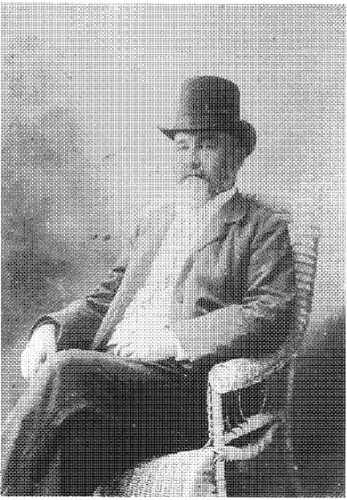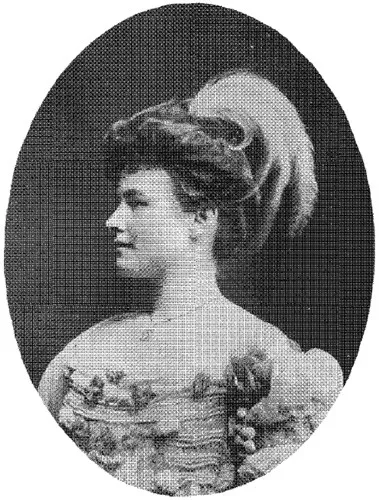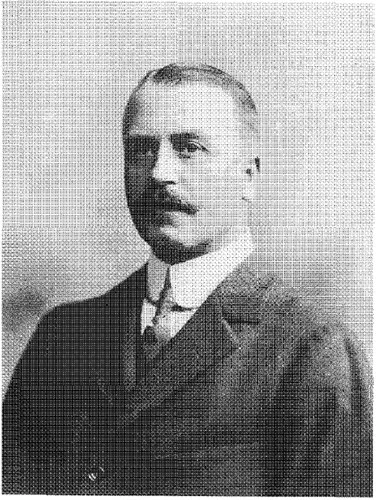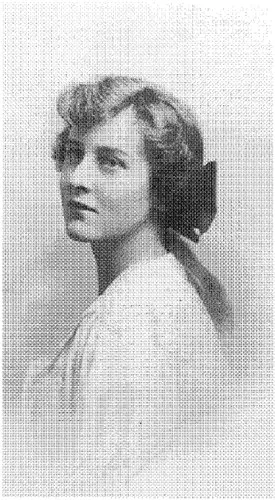
eBook - ePub
In the Realms of Gold
Pioneering in African History
Roland Oliver
This is a test
Share book
- 440 pages
- English
- ePUB (mobile friendly)
- Available on iOS & Android
eBook - ePub
In the Realms of Gold
Pioneering in African History
Roland Oliver
Book details
Book preview
Table of contents
Citations
About This Book
The core of the book is Oliver's account of his research travels throughout tropical Africa from the 1940s to the 1980s; his efforts to train and foster African graduate students to teach in African universities; his role in establishing conferences and journals to bring together the work of historians and archaeologists from Europe and Africa; his encounters with political and religious leaders, scholars, soldiers, and storytellers; and the political and economic upheavals of the continent that he witnessed.
Frequently asked questions
How do I cancel my subscription?
Can/how do I download books?
At the moment all of our mobile-responsive ePub books are available to download via the app. Most of our PDFs are also available to download and we're working on making the final remaining ones downloadable now. Learn more here.
What is the difference between the pricing plans?
Both plans give you full access to the library and all of Perlego’s features. The only differences are the price and subscription period: With the annual plan you’ll save around 30% compared to 12 months on the monthly plan.
What is Perlego?
We are an online textbook subscription service, where you can get access to an entire online library for less than the price of a single book per month. With over 1 million books across 1000+ topics, we’ve got you covered! Learn more here.
Do you support text-to-speech?
Look out for the read-aloud symbol on your next book to see if you can listen to it. The read-aloud tool reads text aloud for you, highlighting the text as it is being read. You can pause it, speed it up and slow it down. Learn more here.
Is In the Realms of Gold an online PDF/ePUB?
Yes, you can access In the Realms of Gold by Roland Oliver in PDF and/or ePUB format, as well as other popular books in Geschichte & Weltgeschichte. We have over one million books available in our catalogue for you to explore.
Information
1

A Child of the Raj
(1923–30)
I suppose that my attraction to far-off things can be traced in part to the first seven years of my life, spent in surroundings of legendary beauty in the valley of Kashmir. My father, at the time of his engagement to my mother in 1920, had worked for some twenty years in the Indian Political Service, mostly as a frontier commissioner in remote Himalayan outposts such as Leh and Gilgit. They had met on board ship when he was returning to India from home leave and she was accompanying her mother on a visit to Australia. There were twenty years between them and she hesitated over his proposal. He landed at Bombay and returned to his post with nothing decided, but six months later he made the long journey (about two thousand miles, which would have taken ten days by various modes of transportation) from Kashmir to meet her on her return voyage at Colombo. This time she accepted, and they were married in Bombay the following year. Soon afterwards he took early retirement, and they settled for some years in the capital city of Srinagar, where I was born in March 1923. I was their only child.
For nine months of each year my parents inhabited a string of houseboats, moored on the left bank of the Jhelum, a mile or two upstream from the old Kashmiri town. There was the “drawing-room boat” in which my parents sat, ate, and slept; the “nursery boat” where I lived with my nanny; and the “cook boat” where the servants had their headquarters and from which they approached the other two boats along outside gangplanks. My earliest visual memories are of the view from the nursery boat, which looked across the wide river with its incessant traffic of long thatch-roofed market boats called dungas, which either floated gently downstream guided by a single paddler in the stern or were laboriously propelled against the current by grunting boatmen who moved precariously along the gunwhales as they pushed their long poles against the riverbed. On the far bank one could see the long roof of the British Residency and the European Club with its wooden terrace built up on stilts above the water. Behind these rose the thousand-foot reddish-brown rocky hill called the Takht-i-Suleiman, with a prison fort on its lower slopes and a Hindu temple on the summit. In the distance, towering ten thousand feet above the valley floor, were the snowy crests of the Himalayas, which bounded our world to the north, as the Pir Panjal Range did to the south. During the three summer months, when the valley became uncomfortably hot, we left the houseboats for a wooden chalet at Gulmarg, “the meadow of flowers” hidden in a green hollow at nine thousand feet on the slopes of the Pir Panjal.
On our side of the river behind our moorings were only fields and footpaths, so most of our outings began by boat, summoned by shouting to the opposite bank. There the owners of small, puntsize shikaras, each furnished with a pair of facing cushioned seats under a central awning, clustered around the steps of the club looking for custom. Somewhere on the other bank my father kept a motor car, a long open Dodge tourer with a rumble seat, which he used mainly for shooting or fishing expeditions in the mountains or up the side valleys. We occasionally made longer excursions in the car, but our everyday transport was by a combination of shikaras and one-horse buggies known as tongas. My parents kept riding horses and probably used them on most days. In Gulmarg there were neither boats nor wheeled vehicles. At first I was carried up the four-thousand-foot escarpment in a little sedan-chair, but at the earliest possible age (four or five) I also rode.
I think that the first datable event that I can remember was my third birthday party, celebrated on March 30, 1926, with a picnic in an almond orchard in full blossom on a hillside near Srinagar. It was an occasion attended not, as one might have supposed, by parents but only by nannies and their charges, and I remember it chiefly because for some reason our transport arrangements broke down, and we had to walk most of the way home. It seemed a very long way, but it was also exhilarating. It was the first time I had conceived of walking as a means of travel, as distinct from an unwelcome form of exercise designed to give nannies their daily outings (they used to lead us to strange and unattractive places such as the European cemetery in the town).
As with many people of my generation and class, Nanny loomed much larger than parents. The first one whom I can remember was Mrs. Watson. She must have attended me for three years, and I became very fond of her. I was much intrigued that she was Missus and not Miss, and soon I began to pump her about Mister Watson. He was, she informed me, a “private soldier” who had not treated her well. A “private soldier” sounded to me very grand indeed, like a kind of freelance who fought just for the hell of it. I was sorry that he had treated her ill, but I suspected that he must be all right at heart. It was probably during my discussions of military affairs with Mrs. Watson that I gained my first insights into world politics. Why, I asked, were we who lived in houseboats so different from those who served us and from those who poled their dungas past our windows? Because, she replied, we were British, whereas they were Indians. And why was it that the British were apparently so few and the Indians so many? Because, she said, the British were in India only as rulers. Their homeland was a small island far away across the sea. I remember that this was a puzzling piece of information. How would the inhabitants of a small island come to rule over a great country like India? Mrs. Watson assured me that it was because the British were stronger. It was the way of things that strong countries ruled over weak ones, and Britain ruled over more weak countries than anyone else. So we were the most important people in the world.

My Australian great-grandfather Owen Friend

My grandmother Bessie (Friend) Donaldson (1875–1965)

My grandfather William Cattenach Donaldson (1869–1914)
All this was in one way rather uplifting. It made me walk taller. At the same time it had some practical inconveniences. For example, it was impressed on me that members of the ruling race were not expected to show their emotions and in particular not to cry in the presence of their subjects. I like to think that there were not too many tears. But I remember one occasion on which Mrs. Watson behaved in a quite uncharacteristic and unaccountable manner, which it took me all of twelve hours to decide to overlook. It was springtime in Srinagar, and we went for a walk with another nanny and her charge, who was younger than I and fortunate enough to be provided with a push-chair. I was on foot, and although the Himalayan sun was hot, I was dressed like my opposite numbers in Kensington Gardens—in a tweed overcoat buttoned to the neck and leggings of the same material. Naturally enough, I lagged.
The two nannies, deep in their discussion of the nursery world, did not notice anything amiss until I was far behind them. They thought it was my fault. I thought it was theirs. I was told there would be a display of physical violence when we reached home, but such threats had been made too often for me to take them seriously. In due course the push-chair party took their leave of us, and Mrs. Watson and I continued on our way, chatting peaceably enough. We ferried over the river, and I mounted the gangplank of the nursery boat with every confidence that any unpleasantness had been forgotten. My outer garments were removed, and I assumed that afternoon tea was about to be served. Suddenly this two-faced woman approached me from behind, turned me upside down, and began to whack me with the back of a hairbrush. Having contemplated this episode with puzzlement for more than a half-century, I can only conclude that the other nanny had put her up to it and that Mrs. Watson dared not face her again until she could claim that she had done it.
In general my relations with Mrs. Watson prospered over the years, to such an extent that when in 1928 I was offered the choice of accompanying my parents on a visit to England or remaining in her care in Kashmir, I unhesitatingly chose the latter. I had no objection to foreign travel, but what, I asked, would happen to Mrs. Watson if I abandoned her? My parents were quite definite that if I came with them to England, Mrs. Watson’s employment would terminate. That settled it. In loyalty I elected to stay. In the event, my decision proved a considerable disappointment. In my simple way I had imagined that Mrs. Watson and I would be left in charge of the household but not so. On my parents’ departure the houseboats in the valley and the mountain chalet were both shut up, the servants disappeared to their homes, and my guardian and I were consigned to Needu’s Hotel in Srinagar and to a seedy boarding-house in Gulmarg. In those places the quality of life was by no means that to which I had been accustomed. We had no facilities for entertaining other nannies and their charges, and probably they felt that we were no longer nice to know. Moreover, that summer, exceptionally, the monsoon reached right into the Himalayas, forcing us to sit all day in our boarding-house bedroom while the rain poured down. Ultimately, I found that all my heroism had won Mrs. Watson only a short reprieve, for when my parents returned they soon decided that the time had come for a governess.
I was now five and a half, and in retrospect I sense that the remaining two and a half years of our stay in India must have been one of the most stimulating and enjoyable periods of my childhood. Certainly, it must bear favourable comparison with the corresponding period most European children spend at primary schools of one kind and another. I still lived in the nursery boat with the new governess, Norah Hottinger, but I was of an age now to be of some interest to my parents, at least to my mother, and the hourlong visit I spent with her in the late afternoons was a pleasurable part of the day. In the mornings I was learning to read, write, and count but only until eleven o’clock, at which time the Kashmiri groom would appear with two horses. He and I would ride together until lunchtime. This was not only a tremendous access to freedom but it brought me into regular touch with another world. The groom spoke no English. We had to converse in Urdu, a language that had been spoken all round me since birth but that I had now to employ actively if I did not wish to ride in silence. In fact, if I remember correctly, we talked incessantly as we rode through the incomparable scenery around the Dal Lake, and at least once he took me to his home in the old town of Srinagar. There we climbed upstairs to a vast room on the fifth floor of an old wooden apartment building where I squatted in a circle with his many relatives and was regaled with delicious freshly baked chapatties (a bread similar to pita).
In Gulmarg even more than in Srinagar, the horse provided me with an avenue to greater freedom and a wider society, for here I found not merely the small circle of European residents in Kashmir but a host of British visitors from the plains of India. Children of riding age used horses rather as their contemporaries in England used bicycles, for house-to-house visiting, for all-day picnics still higher up the mountain, and for the children’s service at the local church. There was even a pack of mounted Wolf Cubs, fully equipped with lances and banners, that met for gymkhanalike exercises in a green meadow.
We spent the early months of 1929, when I was nearly six, in the plains of India. I can remember still the tortuous drive some two hundred miles down the Jhelum gorge to Rawalpindi, with an overnight stop in a rest house perched hundreds of feet above the rushing river. Next day we drove down the last hill into Rawalpindi only to see the train that had been due to take us to Lahore steaming majestically out of the station on its southward journey. It was my first train, and I can still see the green engine and the string of bright red carriages disappearing into the brown landscape. My parents set off to chase it by car, leaving Norah Hottinger and me to follow by the night mail train. I forget where we stayed in Lahore, but I remember the delirious excitement of two successive polo weeks, when the teams of the Indian cavalry regiments competed against each other with high panache. They interspersed their matches with exhibitions of tent pegging, in which thunderous charges of trained horsemen swept past us with lances lowered to pierce and carry away the rows of little white targets a few inches above the turf. For me the trip ended with a monthlong visit to the Hottinger parents at Sialkhot, where her father was a doctor in the Indian Medical Service. He spent a large part of most days driving round the villages of the northern Punjab inspecting clinics and other medical posts. I accompanied him everywhere and thought it a marvellous life.

My mother Lorimer (Donaldson) Oliver (1899...